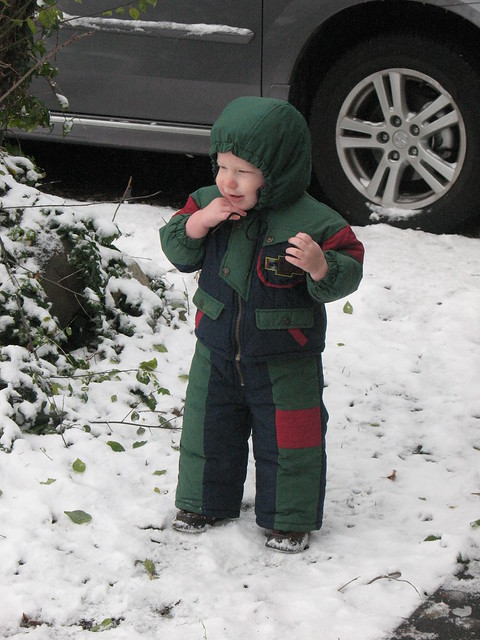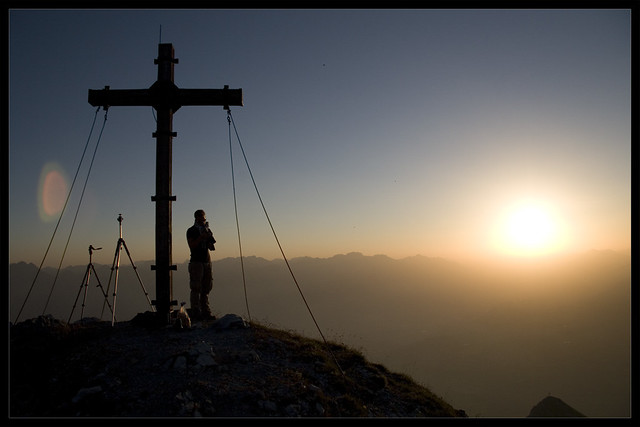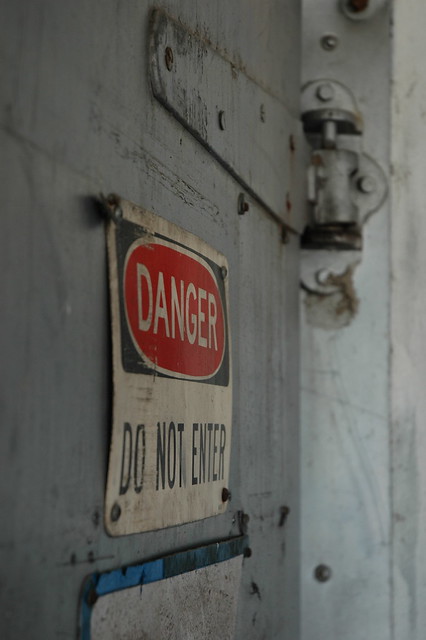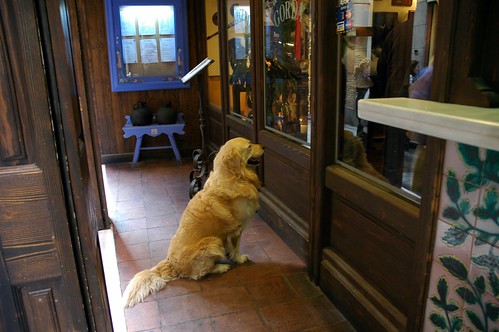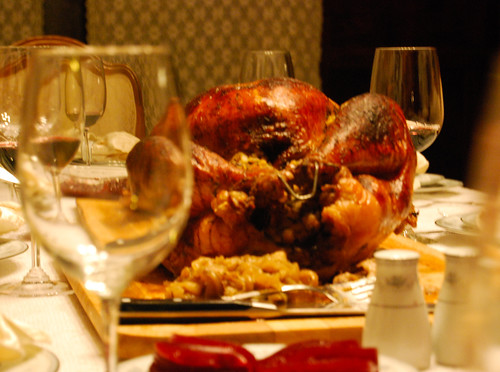The Holy Family of Jesus, Mary and Joseph (A)
Good Clothes for Bad Weather
Readings: Sirach 3:2-6, 12-14; Psalm 128:1-2, 3, 4-5; Colossians 3:12-17 or 21; Matthew 2:13-15, 19-23
Picture: cc Ja-nelle
Sisters and brothers, these rainy days that we’ve been experiencing lately have reminded me of something someone said to me some years ago. At the time, I had recently moved from sunny Singapore to snowy Boston, and I might have been complaining a little about the New England winters. To which this person replied: There is no such thing as bad weather, only bad clothes. What do you think, sisters and brothers? Do you agree with that statement? I’m not sure if I do. At least not entirely. Especially not when I think of people whose cars have been washed away by flash floods, or whose houses have been buried by mudslides. Most of us would probably agree that people such as these are victims of bad weather.
But still, the saying does contain some truth, doesn’t it? The other day, I heard the barista at a coffeeshop complain about how, because she had had to walk through the rain to get to work, her feet were soaking wet. Which led me to think of the other people I’ve seen walking in the rain in rubber boots. Unlike the barista, I’m quite sure that those people managed to keep their feet dry.There is no such thing as bad weather, only bad footwear.
And perhaps what is true about baristas wishing for dry feet is also true about families hoping for peace. Today, on this solemn feast of the Holy Family, we are all praying for peace in our own families. But what does this look like? Sometimes I think that a peaceful family looks like a boat that is sailing on calm seas, under a clear blue sky. There are no financial hurricanes to worry about. No stormy interpersonal conflicts to navigate. No temptations to resist. No separations or divorces. No misbehaving teenagers or negligent parents. No personal hang-ups or addictions. There is only smooth sailing in wonderful weather. Of course, this is not a bad thing to wish and to pray for for our families. But even so, we may ask ourselves whether this is the kind of peace that the family of Jesus, Mary and Joseph enjoyed.
We all know the Christmas story well. We know all about the less than ideal conditions in which Jesus came to be born. Mary was found to be mysteriously pregnant before marriage, so Joseph had to accept a child that was not his own. Caesar had proclaimed a census, so Jesus had to be born while his parents were still on the road. The inn had no vacancy, so they had to make do with a manger in a stable. Then, in today’s gospel, we are also reminded of the very challenging circumstances that the Holy Family had to face immediately after Jesus was born. To escape the murderous intentions of Herod, they had to flee by night into Egypt. And even after Herod had died, and they could finally return to Israel, they had to be careful not to settle in a place that was ruled by Archelaus, one of Herod’s sons who was particularly cruel.
Especially by our modern standards, these are terrible conditions in which to raise a family. And yet, this is precisely the family that is being presented to us today as a model for our own families. What is so striking about this family – and a sure sign of its holiness – is not so much that it never experienced any tensions and trials, but that it never allowed itself to be torn apart by them. If anything, the sufferings that it had to endure drew the members of this family closer to one another. And perhaps the reason why the Holy Family was able to endure such bad weather so well, was because it was always wearing the right clothes.
Our second reading gives us a good description of what these clothes look like. Here, the Christian community of Colossae is being advised to wear spiritual garments of a special kind. Put on, as God’s chosen ones, holy and beloved, heartfelt compassion, kindness, humility, gentleness, and patience.… And over all these put on love.… And whatever you do, in word or in deed, do everything in the name of the Lord Jesus. Similar clothes are also being described in the first reading, which reminds us to keep the fourth commandment, to honor our parents and to care for them in their old age. Take care of your father when he is old... Even if his mind fail, be considerate of him.
These are the same clothes that Mary was wearing when she said yes to that surprising and scary request of the angel Gabriel. Behold I am the handmaid of the Lord. May it be done to me according to your word. These are the same clothes that Joseph was wearing not only when he agreed to accept Mary as his wife and Jesus as his child, but also when, for their sake, he courageously embraced the life of a refugee. Above all, these are the clothes that Jesus was wearing when he declared: I came down from heaven not to do my own will but the will of the one who sent me (John 6:39) And when he proved it by laying down his life for us on the cross.
Today, what we learn from the family of Jesus, Mary and Joseph is that even though life may not always be smooth sailing, there are things we can do to keep the peace. And this lesson applies not just to our immediate families – our families by blood – but also to our extended families, our faith communities and, ultimately, the whole human family as well. Perhaps what the Holy Family is teaching us today is that there is no such thing as bad weather, only bad clothes.
Sisters and brothers, what kind of clothes are we wearing today?
